With Ukraine in flames and the EU green agenda in pieces, 2022 was the year that fears over food and energy security once again hit Europe.
Brussels, Belgium, December 12 2022. Ursula von der Leyen takes to the stage alongside International Energy Agency head Fatih Birol to diuscuss the energy situation of her European Union heading into 2023.
Put simply, things did not look good.
While the European Commission President tried to spin it that the EU had successfully managed to negotiate its dire energy situation so far, and that it would continue doing so next year, the actual statistics dropped by the bloc leader were stark. Even taking into account some of the extreme energy-saving measures put in place across the union this year, the fact of the matter is that the European Union is expected to have a gas shortfall in the region of tens of billions of cubic meters next year. Even worse, no one is quite sure yet how exactly this shortfall is going to be avoided.
Though seriously bad news for the bloc’s member states, the news is far from unexpected. Since the war in Ukraine along with the concomitant sanctions saw the bloc’s access to Russian natural gas disrupted, the entirety of 2022 has been punctuated by warnings from across the continent that Europe is going to struggle with its energy situation for many years to come. Back in August, the Belgian energy minister, Tinne Van der Straeten, predicted that the EU would see five to ten “terrible” winters if radical action is not taken. Meanwhile, French President Emmanuel Macron, whose country is actually in a stronger position than most of its neighbours due to its abundance of nuclear reactors, ominously warned his people that they were now facing the “end of abundance” in their country.
But how did things get so bad? What went so horribly wrong that fears over rolling blackouts and energy rationing are now a regular talking point within European states that had once ruled the world?
While the answer to this question is multifaceted, the first place we need to look is at Europe’s obsession with climate change.
Europe’s Green Agenda:
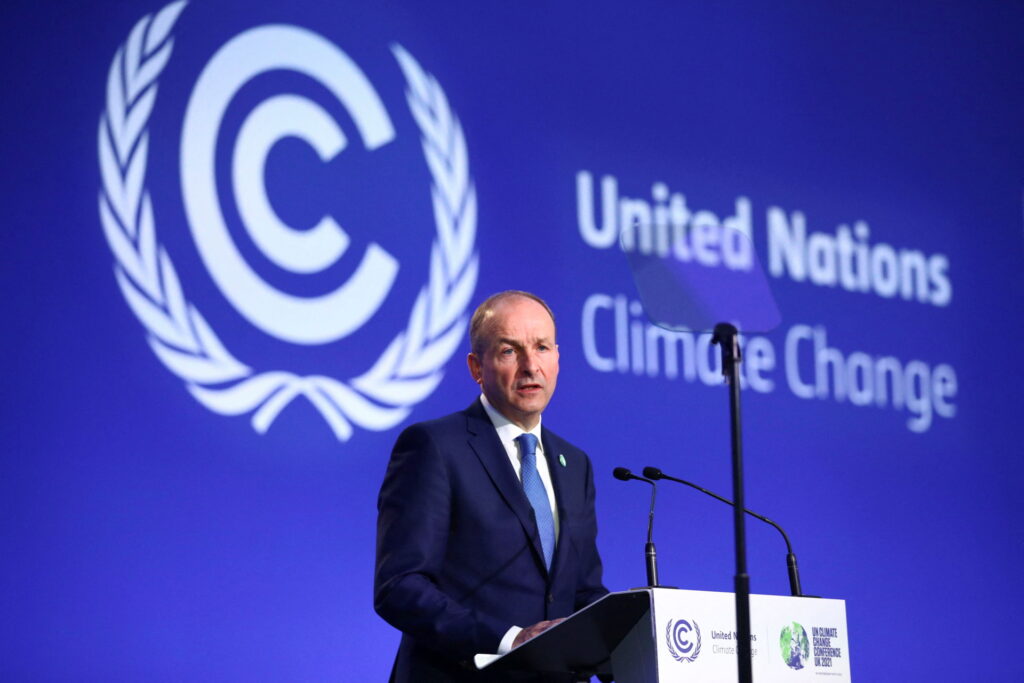
Ireland’s Prime Minister Micheal Martin makes a national statement on the second day of the COP26 UN Climate Summit in Glasgow on November 2, 2021 (Photo by HANNAH MCKAY / POOL / AFP)
The transient nature of many renewable energies currently employed on the continent means that they can hardly be relied upon to supply a consistent amount of electricity on demand.
As a result, even before the current gas crisis, overreliance on green energy sources combined with increasing national grid loads have resulted in some countries drifting dangerously close to blackouts.
For example, long before Russia began shelling Kyiv, Ireland found itself under serious threat of seeing rolling power cuts as a result of its precarious balance of renewable and fossil fuel electricity generation. Having become increasingly reliant on wind energy at a time when more and more electricity-intensive data centres are being constructed by foreign corporations on the island, a sudden drop in wind speeds in 2021 resulted in official warnings that the block could see energy shortages.
Although the country did eventually manage to make it through that winter unscathed, Ireland’s state-owned electricity transmission operator EirGrid warned that such a precarious situation was likely to continue for many more years to come and that increased demands in the country would likely result in higher costs for consumers.
With many EU nations like Ireland struggling to keep the lights on with their new and fancy renewables alone, they were left with little choice but to turn to fossil fuels. However, investing in domestic drilling is both expensive, and would commit many nations to look after a domestic fossil-fuel sector believed to be heretical in their green-obsessed minds. As such, importing gas and oil from abroad to keep the heating on became the solution of choice. Exported climate sins are not easily visible to your leftie voters, after all.
And then Vladimir Putin Started a War:
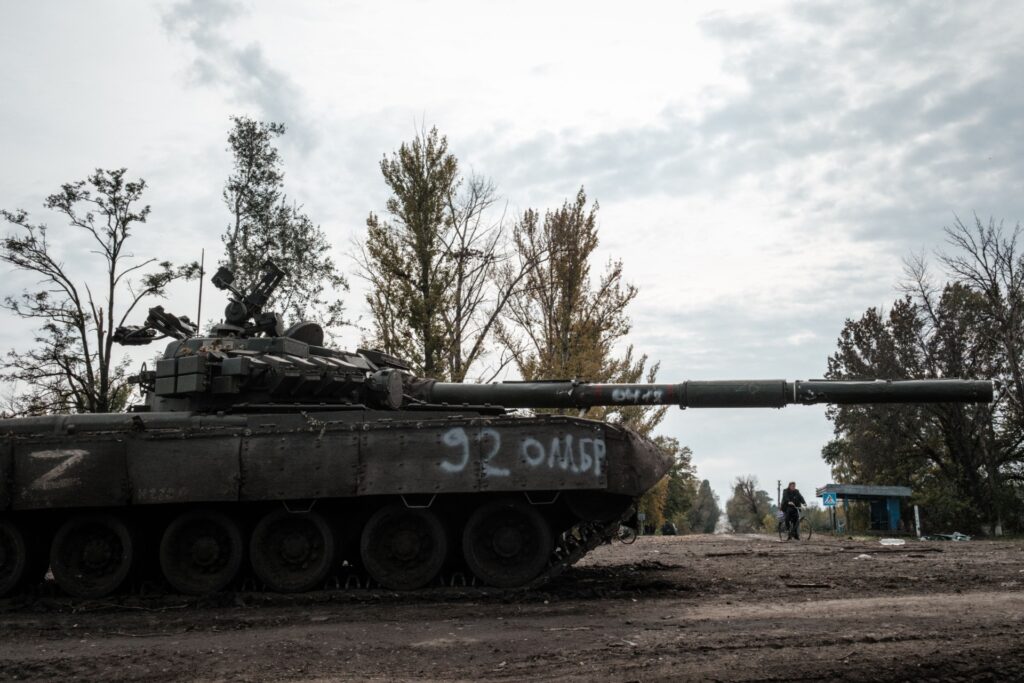
A local resident rides past an abandoned Russian tank marked Z in Kyrylivka (Photo by Yasuyoshi CHIBA / AFP)
Although it was to be in circumstances nobody could have hoped for, former U.S. President Donald Trump would have watched EU lawmakers eat perhaps the largest ever humble pie this year. Having previously laughed at the President for warning them about their overreliance on Russian energy exports, authorities were left with a massive Putin-shaped hole in their energy budgets that they were completely unable to fill with their renewable pet projects.
Things were looking especially bad in Germany. While the country’s overwhelmingly left-wing establishment politicians had openly mocked Trump for his suggestion that their Russian gas affair would end in disaster, they were now faced with the hard truth that the energy imports they relied upon to keep their country moving now came from what is now seen as an enemy state. What were they to do?
Of course, the immediate answer was to keep buying gas from Putin. During the opening months of the 2022 conflict in Ukraine, while Germany was oddly muted in its criticism of the Russian Federation for its illegal invasion of its much smaller neighbour, authorities in the country continued to fund Moscow’s war machine, as to do otherwise would be to drop the country into economic freefall.
Such a situation could not continue forever though, and while the German authorities — quickly enough, to their credit — did manage to fill up their domestic gas storage to near capacity, it was not long until Putin pulled the plug on the central European state back in September. Since then, according to Bloomberg, the country has imported very little gas from Russia, despite 55 per cent of the fossil fuel consumed in Germany having previously come from the eastern state before the 2022 war.
Brace for Blackouts:
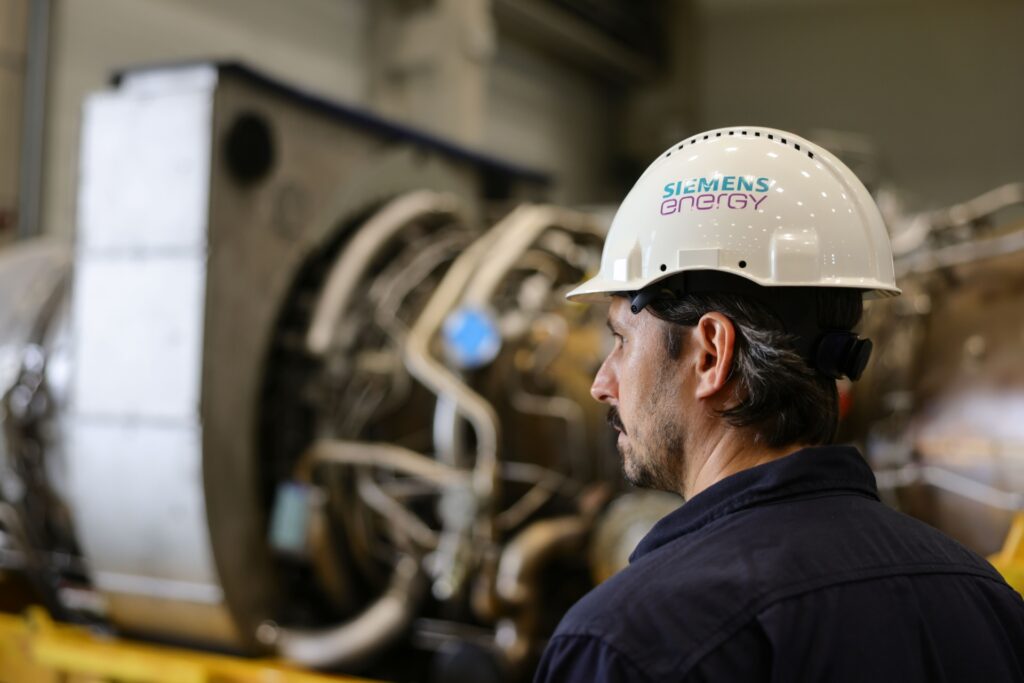
(Photo by Andreas Rentz/Getty Images)
What has the fallout from this crisis been for the energy situation in Europe? Blackouts are now firmly on the table throughout the continent. In Germany alone, there have been repeated warnings of energy rationing being needed, with authorities repeatedly saying that the country will need to cut its energy consumption by a minimum of 20 per cent compared to last year to even have a hope of avoiding issues this winter.
While an uncharacteristically warm autumn period went a long way to reducing energy consumption throughout the north of the continent and, by consequence, reducing the fears of future blackouts, a recent cold snap has seen concerns over shortages reemerge. Klaus Müller, the head of Germany’s Federal Network Agency energy watchdog, has now repeatedly warned the public that the country is nowhere near achieving the total necessary savings that will allow it to get through this winter period unscathed. While he emphasised that people should not panic just yet, he warned that a serious effort will need to be made in January and February to get back on track.
But that is just this year. While those within the EU are currently struggling to save gas in order to both avoid shortages and reduce the impact of sky-high energy prices on their wallets, it is important to remember that many countries entered into this darker part of the year with near-completely full gas storage facilities. Once March rolls around, it is highly unlikely that these reserves will be anywhere near full, and unlike the year before, they will not have the ability to easily replenish them with Russian gas.
With that, let us return to Brussels, Belgium, December 12th 2022. Overall, von der Leyen warned those gathered that the bloc could see a gas shortfall in the region of 30 billion cubic meters next year. For context, the EU overall is thought to have consumed around 412 billion cubic meters in 2021. How authorities will be able to fill this hole remains up for debate.
The Costs:
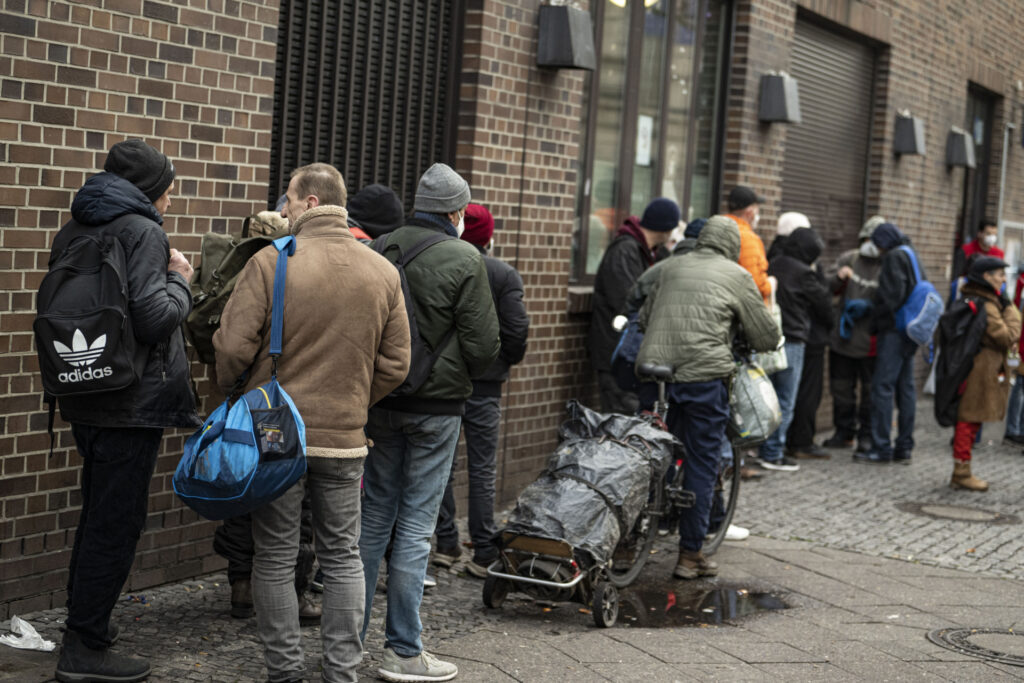
09 December 2022, Berlin: People in need stand in line at the food bank at the Bahnhofsmission am Zoo. Photo: Fabian Sommer/dpa (Photo by Fabian Sommer/picture alliance via Getty Images)
Although major blackouts are not expected to be possible until the late winter, the crisis has already seen some serious damage to both people within the bloc, as well as their businesses.
Overall, the crisis has helped drive EU-wide inflation up to a roaring 11.5 per cent, a figure that represents a surge in the price of food, fuel, home heating and a whole host of other necessities people require in their everyday lives. As such, many within the bloc have been forced to resort to charity in order to keep both themselves and their children fed, with food banks across the continent reportedly seeing a surge in demand. Others have reportedly started skipping meals in order to save money or to allow their children to get enough to eat.
Things are also looking extremely bad for industry on the continent. Back in September, a number of major players within Europe’s metals industry wrote to Ursula von der Leyen warning her that the block was now facing the risk of “permanent deindustrialisation” as a result of the energy crisis, which was rendering their businesses completely unprofitable.
“Producers face electricity and gas costs over ten times higher than last year, far exceeding the sales price for their products,” a letter signed by a number of major players within the industry said.
This was then echoed in October by the head of one major business organisation in Germany. Peter Adrian, the President of the Association of German Chambers of Commerce and Industry openly warned that the vast majority of businesses in the country will not be able to cut their gas consumption by more than two per cent. As a consequence, he claimed that any serious reductions in gas usage from Germany’s industrial sector will be a result of businesses either downsizing or going under, and not as a result of some drive to save energy.
Germans, in particular, have already seen the impact of the cost of doing business becoming unprofitable, with many supermarkets in the country seeing bare shelves throughout the year as suppliers refuse to send goods to various chains as producing them becomes unprofitable.
Don’t Worry. It Gets Worse:
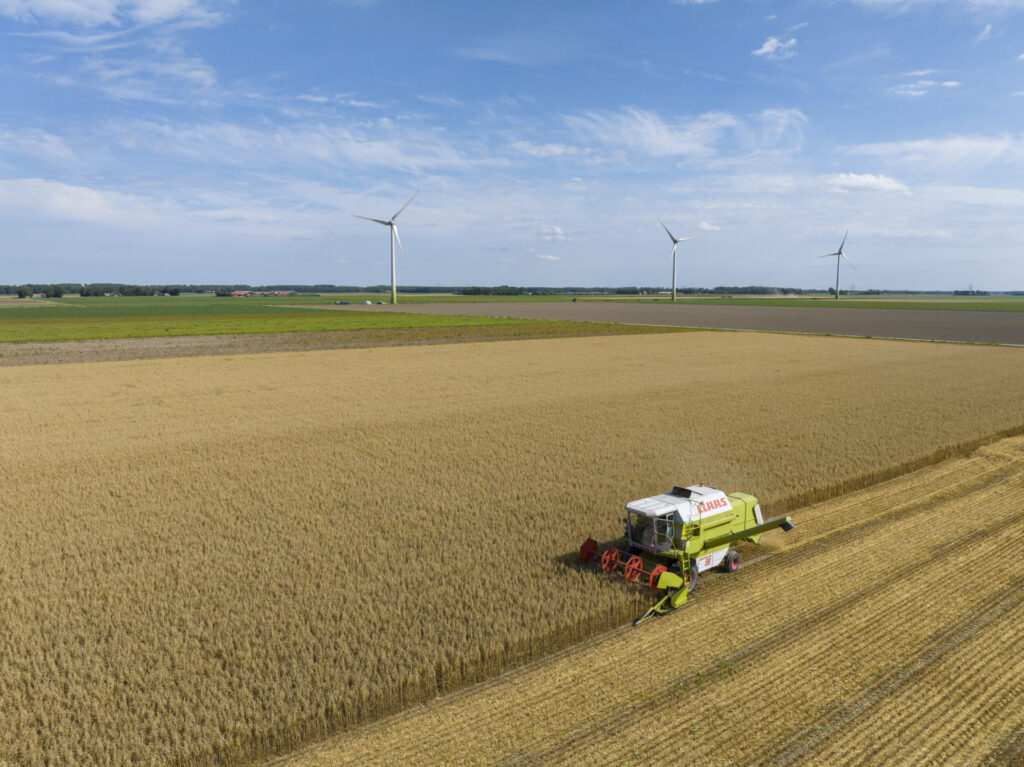
More farmers in The Netherlands have taken up cultivating grain as a result of the war in the Ukraine (Photo by Sjoerd van der Wal/Getty Images)
While a surge in gas prices has obviously affected both private and public consumers, the sudden drop in the availability of gas has had a serious knock-on effect on the European continent’s farming sector. This is because modern farming is highly reliant on nitrogen-based fertiliser, the manufacturing of which requires natural gas, not merely to fuel its production, but as an essential component to the production of methane required for the finished product.
As a result, a sudden spike in gas prices in Europe has resulted in a sudden spike in fertiliser prices throughout Europe. According to a report by the Irish farming portal Agriland, the price of the essential component of modern farming increased by just under 150 per cent in September compared to last year, with the European Commission reportedly putting the increase down to an overreliance on Russia.
Such a lack of fertiliser is a big deal. Farmers within Europe have repeatedly warned that an inability to properly fertilise their crops could result in their yields being halved, something that would likely pose a serious problem not only to the price of food but to Europe’s overall food security.
Such an issue could not come at a worse time. With Ukraine traditionally being one of the world’s most important exporters of wheat for the developing world, the war in the country has resulted in massive instability within the world’s food supply that has caused chaos for the world’s most vulnerable.
Overall, the U.N. estimates that around 49 million people risk famine-like conditions as a result of problems with the world food supply, with an absence of fertilisers only likely to make this problem worse.
Then there is the issue of the EU’s green agenda. Just as farmers struggle with the increased prices of fuel and fertiliser, Brussels has pushed various countries within the bloc to impose restrictions on how various pieces of land can be fertilised for the purposes of preventing nitrogen pollution. Such a project has resulted in the likes of the Netherlands vowing to forcibly shut down up to 3,000 farms in the country in order to meet targets set by Brussels.
Such plans have also spread to Germany, with producers in the state of North Rhine-Westphalia being ordered to not properly fertilise certain parts of their own land or face the wrath of the authorities as a consequence.
What Now?
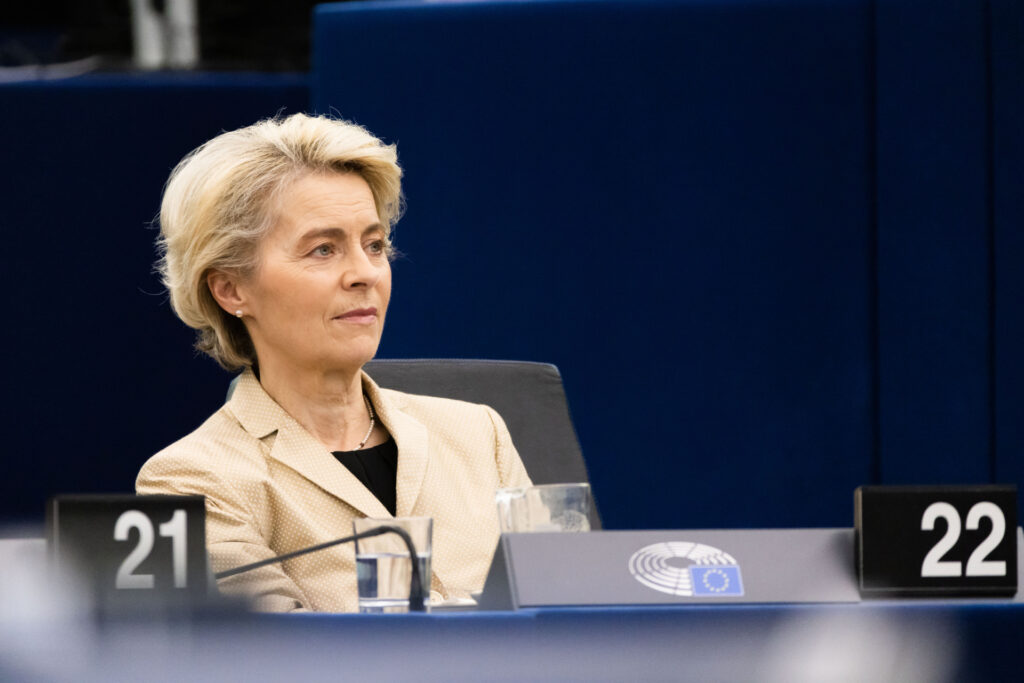
Ursula von der Leyen (r, CDU), President of the European Commission, sits in the European Parliament building. (Photo by Philipp von Ditfurth/picture alliance via Getty Images)
Despite all these problems, much of Europe has opted to continue doubling down on green agenda policies, despite them often being criticised as being of little help when it comes to solving the problems at hand. Germany is still set to shut down its nuclear power plants, while Ireland and the Netherlands continue to push through Brussels green projects to the detriment of their farmers.
Some in the bloc have rebelled. Viktor Orbán’s Hungary, for instance, has taken the decision energy is more important than politics, and to the shock of many signed new deals with Russia for the purchase of even more gas. Other nations have looked towards Liquified Natural Gas imports from the likes of the United States and Qatar as being a possible panacea, but, as a recent corruption scandal ravaging the European Parliament has shown, this too comes with its own problems.
Overall, there seems to be very little appetite to actually expand domestic fossil fuel production in the EU. While many countries in the union have significant stores of natural gas and oil that could fuel their countries for decades should they decide to harvest them, so far, green activist politicians have overwhelmingly fought for such hydrocarbons to be kept in the ground.
At what cost remains to be seen.
